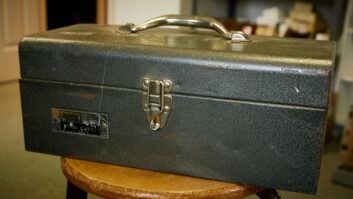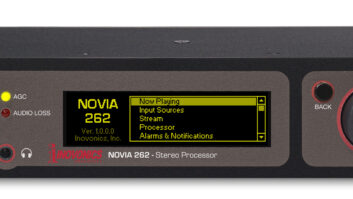Radio World’s Workbench by John Bisset is an industry classic, one of radio’s most-admired, and most-copied, columns. Find out why in each issue.
This tip is from the Jan. 17, 2007 issue.
John Demuth is CE for WTUZ(FM) in Ohio and comments on our discussion about “silica gel desiccant packs.”
He recalls some excellent packages of silica gel that were enclosed with military surplus gear some years ago. The packages were of heavy cloth and seemed almost indestructible; but even with that kind of construction, they might deteriorate with time.
Both John and his wife are diabetic. They use Accu-Chek Compact Blood Glucose Meters. These monitors use a small drum holding 17 sensors. Each drum comes in an airtight plastic bottle with an awesome lid measuring 1-1/8 inch in diameter by 5/8 inches thick.
Why is it awesome? The lid contains a desiccant to keep the drum moisture-free! The bottom of the lid will let the moisture pass into the desiccant, but it is pretty tough material and will take a lot of abuse. A few of those lids could easily be tossed into a toolbox; and if you wanted extra protection, they could be placed into a small cloth bag to keep them contained.
Unfortunately, diabetics abound; an inquiry may lead you to someone who uses this type of glucose monitor. Many hospitals have diabetic support groups and might welcome an opportunity to help their participants recycle the plastic bottles/lids.
The small bottles can also be used to hold screws or other small parts. The white membrane on the underside of the lid is pretty tough, and the lid alone should hold up in your toolbox.
Did you know that you can revitalize silica gel by re-drying it? One of the best ways available to the average person is to place the containers in a warm oven to drive out the moisture. You want the oven hot enough to evaporate the moisture but not so hot as to melt or burn the material surrounding the desiccant. Bake the dessicant at 150 degrees F for a couple hours. Note that some desiccants even change color to indicate whether they are usable (dry) or unusable (ineffective due to having absorbed too much moisture).
Find thousands of helpful tech tips for radio engineers and managers in the Workbench archives at our Web site. E-mail your own tips to [email protected]. Submissions qualify for SBE recertification credit.












